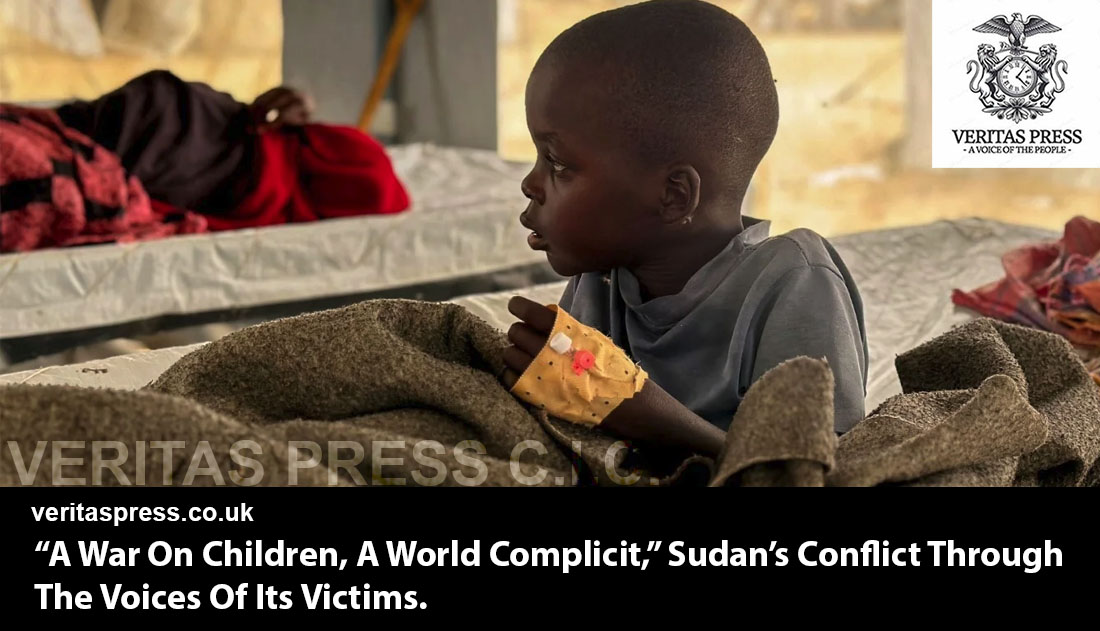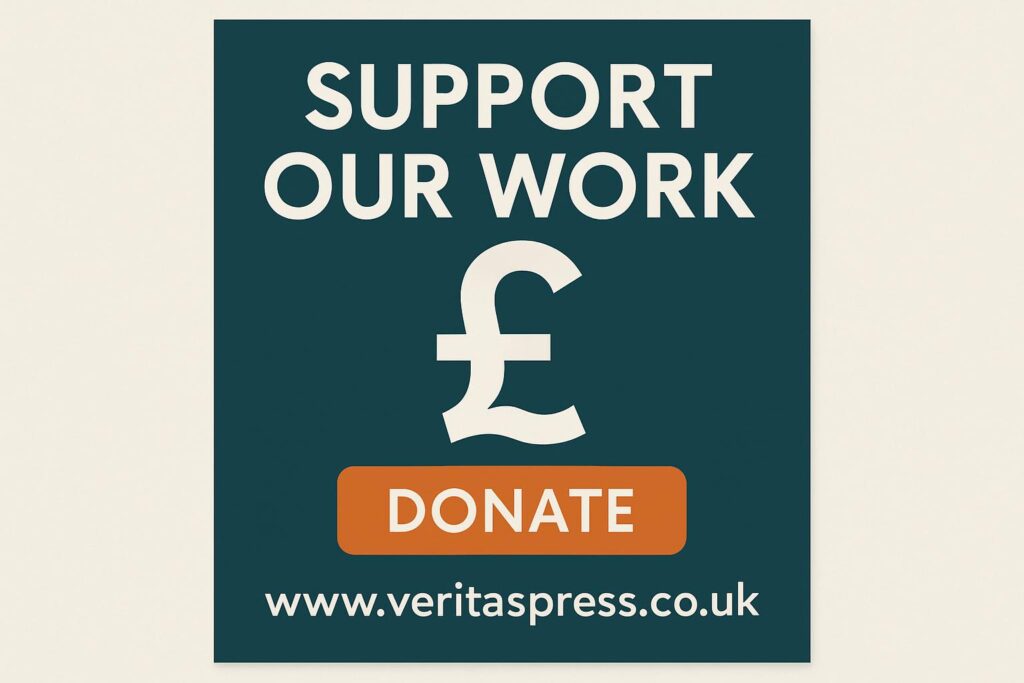A landmark investigation by the Raoul Wallenberg Centre for Human Rights concludes what aid workers and survivors have long feared: children in Sudan are being deliberately targeted. The report, titled “A War on Children, a World Complicit,” documents widespread killings, systematic sexual violence, forced recruitment, and the deliberate destruction of hospitals and schools, and it names external enablers that have fuelled the violence.
Below, I expand the piece and weave in firsthand statements from eyewitnesses, local leaders, UN officials, journalists and activists to show both the scale of abuse and the human detail behind the legal and humanitarian claims.
“Children are dying… they are being cut off from the very services that could save their lives.”
Sheldon Yett, UNICEF’s Sudan representative, has repeatedly issued stark appeals: “Children are dying from hunger, disease and direct violence. They are being cut off from the very services that could save their lives.” UNICEF describes children “reduced to skin and bones” and warns of irreversible damage to an entire generation if action is not taken.
Mukesh Kapila, former UN resident/humanitarian coordinator for Sudan, who wrote the introduction to the Raoul Wallenberg Centre’s report, frames the crimes in the most damning terms: “enslavement and sexual violence targeting children in its most depraved forms as well as their forced conscription as soldiers.” The report’s legal reviewers, including former ICC prosecutor Luis Moreno Ocampo, say the documented acts meet standards for war crimes and crimes against humanity, and raise questions of genocidal intent and complicity.
What survivors, locals and eyewitnesses say:
- From inside besieged cities, survivors give a picture of daily terror. A mother trapped in El Fasher described children “crying for food and water, you cannot sleep for the sounds,” and told aid workers she had buried a child after listening to shelling all night. Local medical screenings coordinated by MedGlobal reported mass malnutrition and devastating damage to homes. Witness testimony in El Fasher describes hospitals hit repeatedly and families hiding in basements as drones loomed overhead.
- Local activist groups and first responders in El Fasher reported mass casualties after drone and artillery strikes on displacement camps; survivors described “children burned and families torn apart” after repeated attacks on shelters. One local organiser told journalists the attacks occurred even as desperate civilians tried to shelter on a university campus.
- Front-line health workers and the Sudan Doctors Syndicate relay the same refrain: clinics and maternity wards shelled; staff killed or forced to flee; and survivors of sexual violence denied care. The Syndicate has highlighted suicides among rape survivors and the collapse of psychosocial services.
Official Voices: United Nations And Human Rights Actors:
- Volker Türk, UN High Commissioner for Human Rights, condemned recent strikes around El Fasher as a “blatant violation of international law,” and warned of a mounting toll among civilians, including children, as sieges, drone strikes and ethnically-driven raids escalate. The UN verified a “dramatic increase in grave violations against children… especially in the Darfur region.”
- UNICEF has repeatedly warned that more than 16 million children need urgent humanitarian assistance in Sudan; children’s immunisation progress of nearly 40 years has been reversed, and nearly 4 million under-fives are suffering acute malnutrition. UNICEF spokespeople and field staff, including Sheldon Yett, emphasise that the crisis is man-made and that funding shortfalls are driving preventable deaths.
- The Raoul Wallenberg Centre’s legal framing explicitly points to international instruments, the Rome Statute, the Geneva Conventions, the Genocide Convention and the Convention on the Rights of the Child, and urges investigations that include external complicity in supplying weapons and finance. The Centre’s investigators say they received corroborating testimony, including from RSF informants, that implicates external sponsors.
Naming External Complicity: What The Investigation Found.
The Raoul Wallenberg Centre’s report and corroborating reporting by outlets such as Middle East Eye document the role of foreign backers, most prominently the United Arab Emirates (UAE), in arming and financing the RSF. The report says there is “substantial evidence” that the UAE supplied heavy weaponry, armoured vehicles, munitions and drones and provided political cover and financing to the RSF. The investigation argues that those links could amount to standing breaches of international conventions if the evidence is confirmed.
Activists and investigative journalists who have tracked corporate and state networks supplying the conflict also point to an index of companies, from aerospace suppliers to private military contractors and commercial entities linked to ruling families, that have profited from or materially supported the warring parties. Those lists, the report argues, are central to expanding accountability beyond battlefield perpetrators.
The Factual Scale Behind The Rhetoric:
- Millions of children deprived: estimates cited by UN agencies and NGOs put 16+ million children in urgent need of humanitarian aid, and roughly 17 million children out of school. Child displacement accounts for 53% of the over-12 million displaced people.
- Attacks on civilians and services: recent strikes on hospitals, displacement camps and mosques, including a spate of drone and artillery attacks around El Fasher that killed dozens, demonstrate the pattern of targeting civilian infrastructure that protects children. UN field reports and the Guardian’s reporting from El Fasher describe hospitals attacked, water and power cut, and food convoys blocked.
- Sexual violence and underreporting: both the Wallenberg Centre and UN monitoring note that sexual violence, particularly against children, is vastly underreported because of stigma, reprisals and collapsed reporting systems. UN-compiled data on grave violations show thousands of children affected by recruitment, killing and sexual violence across conflict zones.
Voices From The Field, Direct Quotations:
- “Children are dying from hunger, disease and direct violence. They are being cut off from the very services that could save their lives.” — Sheldon Yett, UNICEF’s Sudan representative.
- “El Fasher has become uninhabitable — more than 90% of homes damaged or destroyed, people trapped without reliable access to food and water,” said health workers and assessment teams described in reporting by The Guardian, summarising multiple on-the-ground testimonies. Survivors told journalists of nights spent listening to drones and shelling as children cried for food.
- “These are blatant violations of international law,” said Volker Türk, the UN High Commissioner for Human Rights, responding to the surge of attacks that killed civilians in displacement camps and hit medical facilities.
- “We have seen forced recruitment, sexual slavery, and the abduction of children from families,” the Raoul Wallenberg Centre report summarises from dozens of interviews and corroborating evidence gathered by investigators.
- A local activist in Darfur, speaking to journalists after the drone strikes on displacement shelters, said: “They blew up the place where babies were sleeping. People were burning. I carried two children, I couldn’t save them.” (Local testimonies reported in The Guardian and local medical groups’ summaries.)
Why Prosecution And Sanctions Are Essential, And Yet Hard:
The report urges the use of international legal instruments (ICC, Geneva Conventions, Genocide Convention) and new mechanisms (the forthcoming Crimes Against Humanity treaty) to pursue justice. But impediments are severe:
- Evidence collection is hampered by sieges, destroyed records and the intimidation or flight of witnesses.
- Domestic justice systems are broken or politicised.
- States that may be implicated or influential (including those accused of supplying arms) have leverage in international fora, complicating sanctions or referrals.
- Donor fatigue and competing crises limit the political will to impose the kind of sustained pressure that could change behaviour.
What Survivors, NGO’s And Some Governments Are Demanding Now:
- Immediate scale-up of aid: flexible funding, multi-year pledges, and emergency corridors into besieged areas. UNICEF warns of a $1 billion shortfall for core child services in Sudan.
- Independent, resourced investigations: ICC engagement, universal jurisdiction probes, and asset-tracking to hold financiers and corporate suppliers accountable.
- Sanctions and arms-embargo enforcement that target individuals, companies and states credibly linked to supplying war materiel. Human rights investigators argue that naming names is the first step toward disrupting these supply lines.
- Child-sensitive transitional justice and reintegration: programs to rehabilitate child soldiers, psychosocial support for survivors of sexual violence, and education-first rebuilding plans.
A Closing, What The World Must Reckon With:
The Raoul Wallenberg Centre’s investigation is both a legal dossier and a moral indictment: it argues that the violence in Sudan meets the threshold of crimes against children that deserve the full force of international law and political action. Eyewitnesses describe burned shelters, children starving under siege, and hospitals rendered unusable. UN officials and humanitarian agencies describe an emergency that is escalating by the week.
To borrow the report’s blunt framing: if the international system refuses to confront both battlefield perpetrators and the state and corporate networks that supply them, then the world will have been complicit in the destruction of a generation.
Conclusion: A War Engineered, A Generation Exterminated, And A World In Complicity.
The atrocities unfolding in Sudan are not random byproducts of chaos; they are systematic, deliberate, and sustained acts of extermination against a generation of children, enabled by the machinery of global complicity. The Raoul Wallenberg Centre’s report shatters any illusion that this is merely a domestic civil war spiralling out of control. It exposes, instead, an engineered war economy, a network of foreign enablers, and a deliberate international paralysis that together constitute one of the gravest moral failures of our time.
Behind every statistic, every child starved, raped, conscripted, or executed, lies a chain of accountability that stretches far beyond Sudan’s borders. The Rapid Support Forces (RSF), whose fighters burn villages and abduct children in Darfur, are not self-sustaining militias. They are internationally financed death squads, armed and equipped through illicit channels sustained by the United Arab Emirates, whose drones, armoured vehicles, and ammunition continue to flow despite overwhelming evidence of complicity in mass atrocities. These transfers, the Wallenberg Centre notes, constitute not just violations of arms embargoes, but potential breaches of the Genocide Convention, yet not one Western ally of the UAE has demanded sanctions, arms freezes, or accountability.
The Sudanese Armed Forces (SAF), meanwhile, remain shielded by the same cynical logic of “state legitimacy” that has historically protected regimes engaged in war crimes. Both sides claim to be defending the nation; both are instead waging war on its future.
Humanitarian agencies have sounded every possible alarm. UNICEF warns that “irreversible damage” is already occurring. The World Food Programme calls Sudan “the world’s largest hunger crisis.” The UN verifies record-high cases of rape, mutilation, and killing of children. And yet, the international response remains grotesquely disproportionate, a crisis met with paperwork, a genocide met with silence.
This is not ignorance. It is strategic neglect, an international system unwilling to confront its own enablers, unwilling to jeopardise trade deals or military partnerships, unwilling to act when the perpetrators are proxies of global powers. Sudan has become the ultimate test of the world’s moral architecture, and it is failing spectacularly.
The Wallenberg report’s title, A War on Children, A World Complicit, is not a rhetorical flourish. It is a legal and ethical indictment. If the deliberate starvation, mass rape, and enslavement of children are not sufficient to trigger international justice mechanisms, then the global human rights framework is not broken, it is obsolete.
As one Sudanese aid worker told Al Jazeera: “We no longer ask the world to save us. We ask them to stop arming those who kill our children.”
The deeper truth is that Sudan’s war is sustained not by local hatred alone, but by a global economy of indifference, one in which children’s bodies become collateral for profit, influence, and geopolitical convenience. The world’s silence is not neutrality; it is participation.
If the Raoul Wallenberg Centre’s findings are ignored, Sudan will not just mark another humanitarian failure; it will stand as the final death knell of the post-war promise that ‘never again’ meant something.
The destruction of Sudan’s children is not a tragedy. It is a calculated crime, and the longer the world averts its gaze, the more it becomes an accomplice to that crime. Justice, if it ever comes, will have to account not only for the generals and warlords, but for the governments, corporations, and institutions that chose profit, partnership, and passivity over humanity.
Until that reckoning occurs, Sudan’s children will continue to die not just from bombs and hunger, but from the world’s willful silence.




























